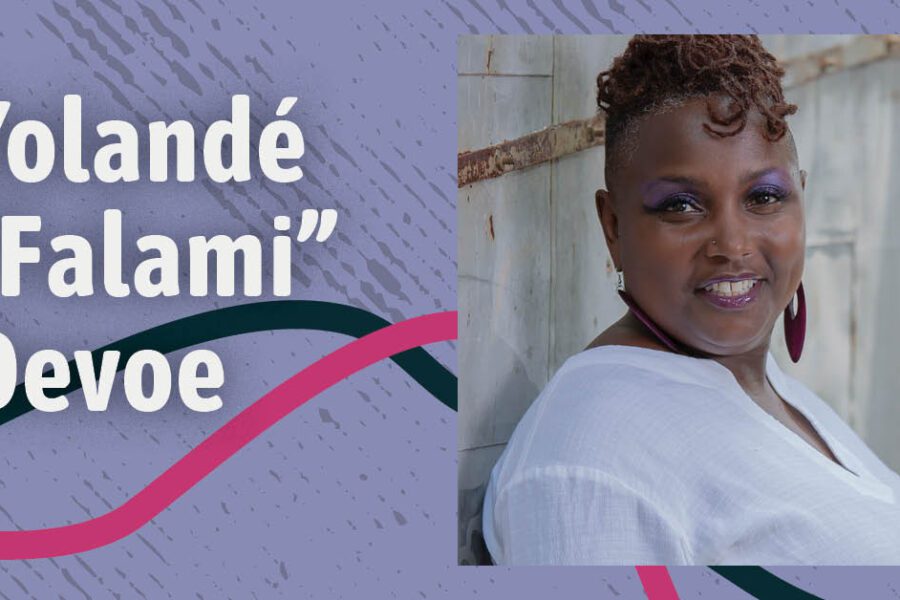
Growing up in Jamaica in a culture in which she remembers as a child that, “women should be seen and not heard,” she now works to ensure that their voice is being heard as they journey to become leaders.
A student in the Antioch University Graduate School of Leadership and Change, completing her PhD in Leadership and Change, Smith-Kea is embarking on her dissertation that explores the life and journey of women in executive leadership positions in law enforcement in the United States, looking more closely at the unique factors that got these women into positions of power in this male-dominated profession.
Her previous work while at the Council of State Governments (CSG) Justice Center involved working with law enforcement around the country. On many occasions she would often times enter rooms being the only female, and the only minority in a position of authority. And, if other women were in the room their voices were being minimized. This piqued her interest in wanting to learn more about the experiences of women in law enforcement.
“I experienced firsthand how women were being silenced,” she said. “Out of 18,000 law enforcement agencies, about 2-3 percent have women in executive leadership positions.” And she became even more curious, wanting to learn more about those few women at the top.
Her experience, she explained, highlighted the missing voice of females in conversation and at the table.
Smith-Kea, one of six children, had her mother as an early role model.
She broke all the molds, and taught me how to have a voice. How to stand up for what I believed in. To always help others who are less fortunate, no matter what”
When Nikki (as she is affectionately called) was doing her undergraduate work at the University of the West Indies, she was very much a part of student leadership, often heading marches and protests in defense of women’s rights and against intimate partner violence on the campus. “I wanted to give voice to women being abused on-campus,” she said.
“I’ve always been interested in supporting and defending women’s rights and female equality and equity. I’ve never been one to stay within the mold of what society dictates I should be. I’ve always challenged what society dictated should happen with me as a female.”
She moved to the United States 13 years ago but was introduced to Antioch University in 2003 when she was leading an undergraduate student-leaders group from the University of the West Indies on a trip to Guadalajara, Mexico to the International Leadership Association conference.
One of the Antioch students presenting that day would become her husband, Howard Kea, who is an executive coach and works as a senior human resource business partner for NASA Goddard Space Flight Center.
“He was presenting a paper on tragedy in the workplace, highlighting the space shuttles Challenger and Columbia accidents,” she said.
During that same trip, she also met Laurien Alexandre, provost of Antioch’s Graduate School of Leadership and Change.
At the time she was a master’s student in sociology with a concentration in social psychology at the University of the West Indies.
“I noticed similar studies in leadership,” she said.
She began her third master’s degree at Antioch University in leadership and change in 2014.
In the eight years prior to beginning that program, when she had first moved to the U.S., Smith-Kea felt her voice as an immigrant and as a woman was minimized.
“The Nikki who I was, was being chipped away,” she said. “I lost some of who I was. Back home (in Jamaica), it was never about race or class. I was never afraid to talk. All of a sudden, I became an example in a Criminology class discussion about Social Disorganization Theory and Concentric Zones. And my voice got smaller and smaller.”
As part of Antioch cohort 14, she was part of a 50 percent minority, “in a class with people who looked like me who were not afraid to speak their truth and to voice how they felt in an elite academic space.”
“Antioch helped solidify the significant parts of me as a black Jamaican female,” she said. “I began to express myself again – the program forces you to do so. You have to dig deep and identify why you are where you are, and why you are who you are. In my first year of the program, I pledged to myself then that I would increase my voice.”
Being an Antioch student, she added, also forced her to be a more reflective writer.
Smith-Kea wrote two op-eds giving voice to women in the criminal justice system. The first published February 2019 in The Sacramento Bee entitled, “California Arrest Rates Highlight a Disturbing Trend for Women.” The second published in April 2019 on the Arnold Ventures page titled, “Women in the Criminal Justice System Need Their Own Social Justice Voice.”
In both pieces, she touches upon the increased criminalization of women in the state of California and throughout the country. She highlights the current system failure to acknowledge or understand women’s pathways to prison even amid an alarming increase in the arrest and incarceration rates for women. She discusses the missing voice of women in the criminal justice system and calls for women to be included in writing reforms intended to move people away from the system. And she cites the need for law enforcement reform and a more intentional gender-based and trauma-informed response to meet the needs of women in the justice system.
These pieces were informed by some of the earlier work she completed for her first master’s (in sociology – social psychology option from the University of the West Indies, Jamaica) that focused on motherhood and incarceration, looking at the identity of mothers who were in many cases, unwilling participants in the drug trade and now imprisoned in a foreign country, away from their children, negotiating motherhood.
In her position as criminal justice manager at Arnold Ventures, she continued on a familiar path, giving voice to persons experiencing mental illness, substance use disorder and/or homelessness who come in contact with law enforcement.
This is a journey she started while at the CSG Justice Center where she worked at the intersection of law enforcement, mental health, substance use disorder, and homelessness, helping law enforcement agencies around the U.S., to create or enhance their police-mental health collaborations, focusing on diverting persons experiencing a behavioral health crisis away from the criminal justice system and into appropriate services
“There’s a huge gap in behavioral health resources in the United States,” said Smith-Kea. “Law enforcement are called in many cases to respond to persons in crisis without much training, resources or knowledge and there’s no connection made to long-term services and effective treatment. There’s no robust collaborative system-level response. We’re trying to disrupt that cycle.”
With her PhD, Nikki’s hope is to continue on her current path helping some of our most vulnerable populations, but also work toward increasing the number of women working in law enforcement and at the executive leadership level in the United States. She eventually wants to also do work in Jamaica promoting female equality and equity in law enforcement and other sectors.
“I don’t ever see myself not being in this space – whatever it may be – of defending women and giving space to women, especially those stripped of their voice,” she said.




